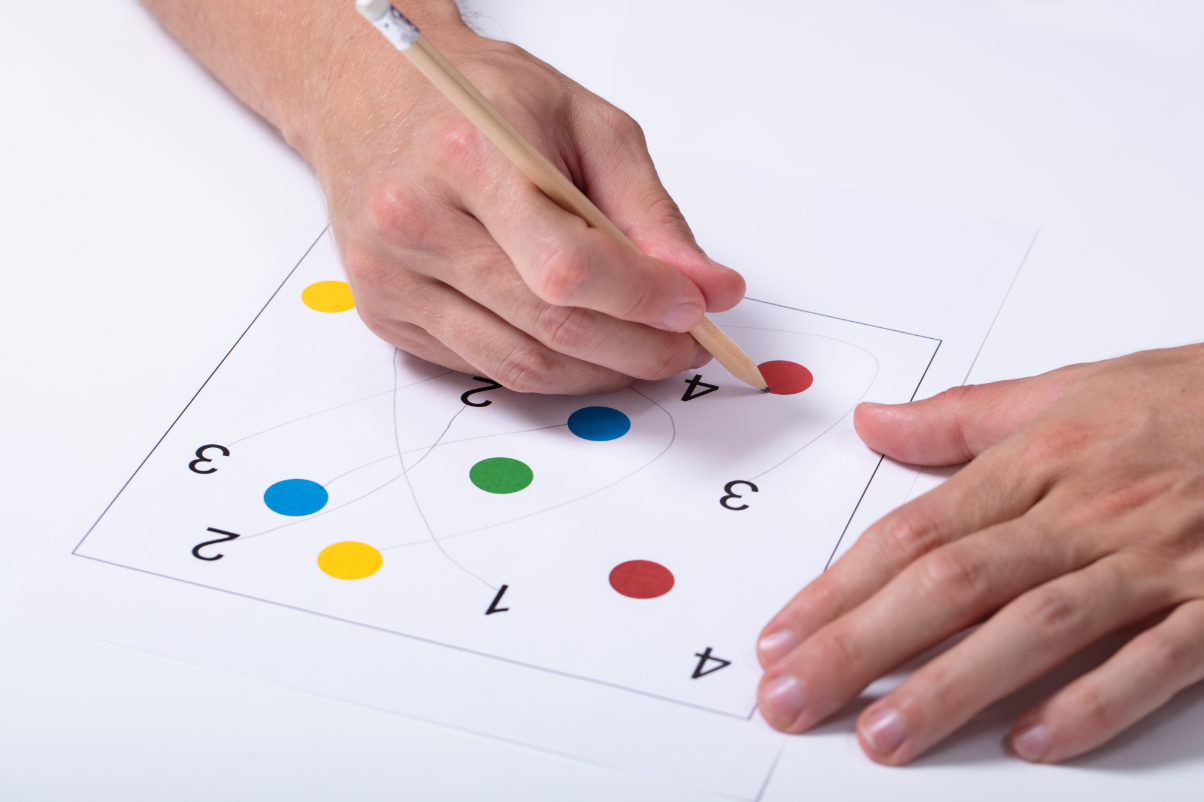Preventive Healthcare
Cognitive Test: What it is, Different Types & Results
2296 Views
0

A cognitive test is a type of test that checks the mental function or the cognitive function of the brain. It does not diagnose any particular condition but instead provides an assessment of how well the brain's cognitive function may be working or if there are any impairments. It also helps medical practitioners decide if further tests are needed to address any problem at hand.
What Do Cognitive Tests Show?
Cognition is the brain's engagement in intellectual activities such as reasoning, judgment, paying attention, listening, thinking, and other day-to-day activities. If there is a suspicious decline or disturbance in these activities, one may undergo basic cognitive assessment tests that help identify the need for further testing.
Why Should I Take a Cognitive Test?
Cognitive tests are usually recommended in cases where signs of mental impairment are seen. These include situations such as:
- Forgetfulness
- Repeating questions
- Anxiety and irritability
- Difficulty remembering past events
- Requiring to repeat things or tasks more often
- Getting lost
- Losing material items often
You may notice these symptoms or a family member might notice and refer you to a cognitive assessment. These tests can help measure mental functions and indicate the need for any further testing based on the scores.
What Happens During a Cognitive Test?
Prior to conducting the tests, the doctor will consider a patient's history and perform a physical exam. Such thorough examinations may help recognise any behaviour or personality disorders that may cause cognitive impairment. Before deciding on a particular cognitive assessment test for a patient, it is best to compare available options and see what best suits the patient as well as the administrator.
In some cases, some institutions may have a fixed or preferred testing model that may be used. The instructor or the administrator needs to be well-trained in the administration protocols. These cognitive tests are quick and basic and require no prior preparation from the patient.
What Are the Different Types of Cognitive Tests?
Many screening tests are administered to test a variety of factors, such as intellectual capacity, attention, concentration, processing speeds, memory, and so on. Of these, the most common cognitive tests are:
- Montreal Cognitive Assessment (MoCA) Test- This cognitive test takes about 10 minutes to complete. It includes tasks such as language, reasoning, orientation, and so on. For instance, some tasks involve memorising a short list of words, identifying a picture, copying and drawing an object, etc.
- Mini-Cog- The Mini-Cog is deemed the shortest and easiest of all tests and involves memorising objects, listing, and drawing them. This standard test is easy to perform and evaluates cognitive, language, and executive functions. It takes about 3-5 minutes.
- Myers Briggs Type Indicator (MBTI Cognitive Functions Test)- This cognitive test is based on a questionnaire to detect psychological preferences in how people perceive the world and make decisions. The test depends on "rational" judging functions and "irrational" perceiving functions.
- Mini-Mental State Exam (MMSE)- This cognitive assessment test involves simple tasks such as counting backward, stating the date, and other common facts that are to be known on a day-to-day basis. This test takes about 10-15 minutes.
- The Saint Louis University Mental Status Examination (SLUM)- This is a screening test for Alzheimer's and signs of dementia. It is an alternative cognitive test to MSME and is designed to detect mild cognitive impairment during the onset of dementia. The test takes approximately 7 minutes to administer and involves general questions, testing short-term memory, recalling, calculation and recognition.
There are plenty of other screening tests, such as the Mental Status Questionnaire (MSQ), Fundamental Activities Questionnaire (FAQ), Mini-Cog, and Telephone Instrument for Cognitive Status (TICS), among others. Some require moderation by an administrator, while others are online tests. To ensure accuracy, all the assessment tools provide clear instructions and tutorials on administering and scoring the test properly.
What Do The Results of The Cognitive Test Mean?
The test results may be scored based on the instructions accompanying each test type. Of these, there will be a normal and an abnormal range. If the test results are not normal, it may be indicative of a problem with mental function. But, the tests do not pinpoint the underlying cause.
To identify the cause, the medical practitioner may have to conduct additional tests to diagnose the medical condition. In some cases, the impairment may be due to treatable medical conditions, such as:
- Side effects of medication
- Thyroid
- Lack of vitamins
- Depression and anxiety
- Vascular disorders
In other cases, additional tests may be needed to determine if the patient has mild cognitive impairment. This is the stage during the beginning of dementia characterised by changes to memory and functioning. Some nonreversible causes of memory loss or brain impairment include:
- Age-related changes
- Alzheimer's disease
- Frontotemporal dementia
- Parkinson’s related dementia
However, cognitive tests form the first step to a larger diagnosis pattern of identifying neurodegenerative disorders. They are best used in conjunction with additional tests to understand why and where the impairment is present.
Conclusion
Cognitive tests are evaluation tools that determine if an individual is undergoing any cognitive impairment or decline. Rather than a diagnosis, it is used to determine if the individual needs further testing based on the cognitive test scores. There are no risks to the tests, and they have a duration of about half an hour to an hour at the most.
Cognitive tests are important as they offer the chance to diagnose and treat any reversible causes of cognitive impairment. Early medication and treatment lead to better disease management and personalised care. In the case of irreversible causes, comprehensive tests can be conducted to finalise a diagnosis, and treatment can be designed accordingly.
 Home Visit
Home Visit Upload
Upload














1701259759.webp)









 WhatsApp
WhatsApp